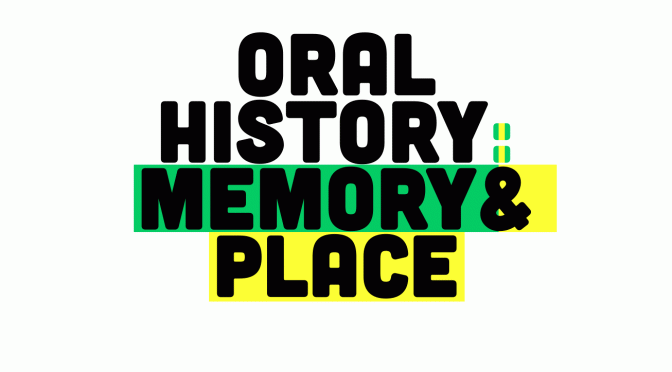In today’s time, with information overload in our highly digitized lives, how do we understand the role of memory? Not in the clichéd sense of remembering the good old days, but rather, looking at memory which gives us a sense of history. History that is not found in textbooks which places importance on events, dates and facts making it extremely inaccessible and isolates one from the past. So then, what is the role of memory and place within a historical event? For instance, understanding the partition period through an event like Jalianwalabagh Massacre from a textbook and through personal accounts of someone who witnessed it, open up a completely new facet of India’s partition. In one, you have one of the most horrendous acts committed by a man in power and in the other, you have someone who is a common man; not someone in power, yet has something to share about the same period through their memories and personal experiences. Oral History in one sense also becomes a way to trust human experience more than just bookish knowledge which is passed on to us. The intermingling of memory, place, personal accounts and emotions in the backdrop of historical events gives rise to ‘Oral History’. The orality of personal accounts makes it raw, fragmented and hence extremely human. It bridges the gap between the personal and the political. One does not view the political separately from the personal, rather like a good story, it complements each other as foreground and background respectively.
One of the first interviews I conducted was of my grandmother about her journey from East Africa to Porbandar in 1966 after the Zanzibar revolution, and it was fascinating to see the way she reconstructed the revolution period purely from a sense of memory. This led me to interview many other people who left East Africa during that period and hence it opened up a completely new version of the Zanzibar revolution. One that cannot be found in books or Wikipedia! Oral History interviews are like a performance, where in the interviewer speaks the least and the interviewee runs the show. It is academic but at the same time not bound by any particular structure or format. It can take any form either book, archives, photographs, films, essays or even plays. Going forward, I plan to design a curriculum for schools titled ‘Oral History & Performance’ which will be an interdisciplinary approach to creating performance looking at history from primary and secondary sources, field research and guest lectures. With support from Riad Mahmood Arts & Education Foundation , I will be attending the Oral History Winter School in Jan’2015 and this year’s Winter School will examine the meaning memories about place hold in producing individual, social, cultural and political narratives. At the same time, oral history as a subject and its research methods continue to enhance my professional work outside as a theatre artist.

